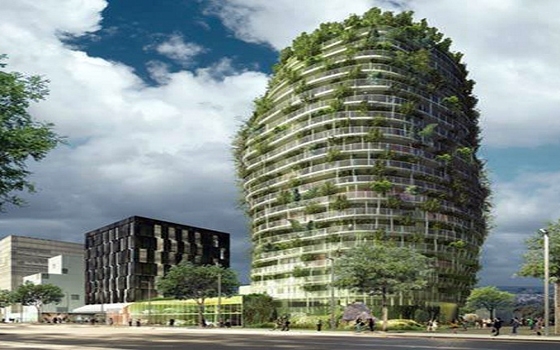Qatar Green Building Council (QGBC) hosted a seminar for Qatar’s construction industry sustainability experts to debate the effectiveness of building sustainability assessment Systems.
Leaders in energy conservation, green building research, and best practice were given the invaluable opportunity to review the efficacy of current systems, while finding alternatives that better address the needs of the Qatar’s existing building stock.
With mounting interest in green building practice amongst Qatar’s developers, the seminar, titled ‘Building Sustainability Assessment Systems: Do they really affect change?’ proved vital in evaluating best routes for carbon reductions in the GCC region. The gathering, which is part of an on-going series of successful workshops and events hosted by QGBC, is aimed at promoting greater awareness of sustainability issues and provides a constructive platform for the discussion of environmentally-friendly practices and policies.
In his opening remarks, QGBC Director Eng. Meshal Al Shamari welcomed attendees and highlighted the significance of their involvement in such pertinent discussions, while stressing QGBC’s continued commitment to developing the green building movement in Qatar.
“QGBC is proud of its role as a reliable leader and active member of the growing green building movement in Qatar,” he said. “This seminar is another exciting occasion to explore and discuss trending issues within Qatar’s green building and sustainability industry, as we bring together key members of the community to network and take the necessary steps towards a more sustainable tomorrow. We are committed to mobilizing the expertise of our fellow researchers in order to address Qatar and the region’s sustainability challenges.”
During an informative introduction, Dr Alex Amato, Head of Sustainability at QGBC, presented the crux of the argument and shed light on the subject’s fundamental complexities. He asked participants to reflect upon the changes and accomplishments that have been achieved since the first building sustainability assessment system – BREEAM – was introduced to the UK two decades ago, and posed a series of questions for delegates to discuss.
Dr Amato explained, “There are now many assessment systems that are widely used throughout the world by clients and design teams concerned about making their buildings sustainable. Undoubtedly they are a positive driver for change and much has been accomplished. However, the question remains whether they really do act as a driver of change for the majority of the industry. Moreover, do they really work in improving the sustainability of the existing building stock? Is regulation the only answer or are there other alternatives, especially for the existing building stock where retrospective legislation would be untenable?”
Experts expressed belief that, with increased pressure on natural resources pushing the production of CO2 emission per capita in the region to one of the highest in the world, it has become imperative to weigh the benefits of new systems and to develop an integrated approach.
Dr Philip Buttery, Chief Executive, International Sustainability Alliance, discussed the future of building assessment systems in the GCC region and the scope for CO2 reductions.
He said, “Sustainability agendas are now an integral part of the legislation in several countries in the region, with the aim to expand this approach to the rest of the GCC. We have examined the most used sustainability rating systems in the region and tried to independently compare their outgoing message about their contribution to cutting emissions.”
In an insightful segment on ‘Sustainability Assessment Systems and Master Planning,’ Helen Eastman, Senior Associate at Environment at AECOM, invited audience members to consider both the advantages and disadvantages of implementing minimum standards and guidelines. The seminar drew to a close with a useful presentation on the value of benchmarking and reporting by Philip Buttery, Chief Executive of the International Sustainability Alliance.
QGBC is a non-profit, membership-driven organization. It is dedicated to advocating green building solutions, leading industry research, as well as promoting sustainable practice in the community. Through QGBC, Qatar has joined a network of 80 different countries that run active national green building councils under the umbrella of the World Green Building Council.
ifpinfo
1 October






















































